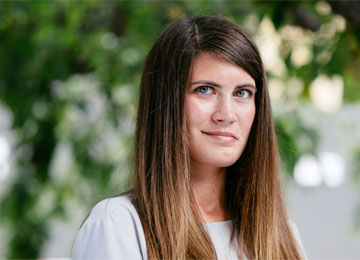“I’m still me”
Maintaining children and young people’s friendships after a brain tumour diagnosis – a guide for teachers.
Dealing with the physical and mental health effects of a brain tumour, such as cognitive difficulties, mobility issues, fatigue and anxiety, can be hard enough for children and young people. But there are indirect, less obvious impacts that radiate out from these, that can be equally difficult – such as effects on their education and, consequently, social relationships with their friends and peers.
Our report, Losing my Place: the reality of a childhood brain tumour, found that over half of the children* we spoke to said their brain tumour diagnosis had a negative impact on their friendships.
Symptoms, such as loss of vision or hearing, and impairments to cognitive processing, speech and memory, can make full social and physical participation difficult. Being absent from school and/or learning at a slower pace can also add to the difficulties children can face in maintaining a place within their social peer group.
Many were worried or anxious about going to school. They felt embarrassed or excluded if they had to take regular breaks, needed extra help or were away from school a lot. They often felt lonely in their education setting and many spoke about struggling to make other children understand their diagnosis and its effects.
So we listened to the views of children, as well as their parents and professionals, and developed a resource to support children’s relationships with their peers after a brain tumour diagnosis, during treatment and beyond.
*Throughout we will use the term children when referencing those younger than 18. We may refer to older teens as young people, where appropriate.
Who is this resource for?
Since school makes up such a large part of a child’s daily life, this is naturally where most of their friendships are formed and strengthened, so teachers are in a great place to be able to support children to maintain their friendships following a brain tumour diagnosis.
The resource is designed to be beneficial for teachers supporting a child affected by either a low grade or high grade brain tumour. It may be useful for parents and families too.

Although we are overworked as teachers, our door is always open and we will always help/be that shoulder to cry on when needed.
Emma Bassett, primary school teacher, diagnosed with a brain tumour in 2004, aged 12
Why use this resource?
The resource has three clear aims:
- to support you, as a teacher, in developing a greater awareness and understanding of the child’s needs, through giving informative and practical advice and tips on issues that can arise. It’ll help you plan, prepare and run sessions – with the child and alongside classmates
- to help the child’s friends understand their peer’s diagnosis and become more aware of their needs
- to empower the child affected by a brain tumour to take some control over their situation, through sharing their story with their peers, as far as they feel comfortable doing.

Maisie had a real passion for learning, so being able to go into school and talk about her illness and show the pupils in her class that, yes she was ill, but she was still Maisie, gave her a massive confidence boost. And, she could show the children that her having lots of extra equipment in school was nothing to worry about.
Mum of daughter diagnosed with a tumour
When might you use this resource?
Use this resource to support primary or secondary school aged children and young people, who are affected by a brain tumour and may be:
- away from school for some time
- returning to school after time off
- starting school
- at a transition time*
- at any point in their journey following a brain tumour diagnosis…
…but only if and when a child feels ready to tell their story.
*Transitions can be either between schools (e.g. primary to secondary school, secondary school to further education) or between classes within the same school. Transitions can be an exciting, yet anxiety-provoking and stressful time, so need careful preparation, support and management.
Every child’s journey with a brain tumour is different, so the resource is designed to be used flexibly, to suit the needs of the child affected by a brain tumour.
Prepare yourself
Learn about brain tumours, so you can support the young person and their classmates.
Communicating with the family
Understand the importance of keeping in touch with the family, following a diagnosis.
Absent from school
“Don’t forget about me!” – tips for keeping in touch with the young person.
Supporting peers
Tips to answer the questions and ease the worries of friends and classmates.
Returning to school
How to empower young people to cope with returning to school after brain tumour treatment.
What next?
Tips and advice for supporting young people’s friendships in the long-term.
Resources
Class activities and other practical resources to help with maintaining friendships.
Acknowledgements
A special thank you to everybody involved with the creation of these resources.